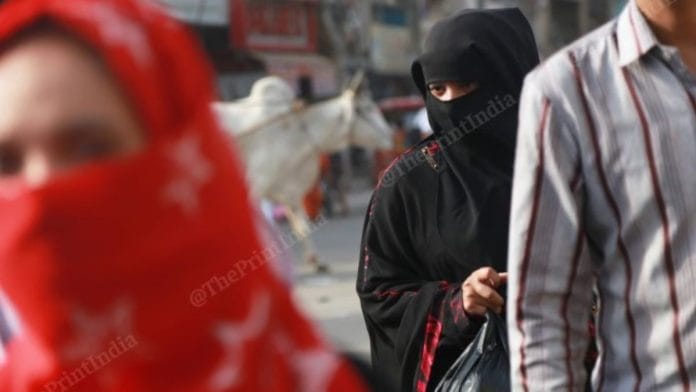The Supreme Court outlawed instant triple talaq in 2017, a judgment Parliament eventually affirmed through legislation in 2019. But while talaq-e-biddat was struck down as arbitrary and cruel, talaq-e-hasan escaped scrutiny. It is less intense for sure, but is it any less unequal in practice?
It still allows a husband to end a marriage unilaterally by saying “talaq” once each month. Now, the Indian Supreme Court has finally turned its attention to whether such a one-sided mechanism can survive in a constitutional democracy that claims to value equality. The difference between instant and staggered injustice, after all, seems only procedural, not moral.
The court’s shock was almost palpable. While hearing a batch of petitions on talaq-e-hasan and its implications for gender equality, the judges finally voiced the question many of us have been asking for years: “How is this allowed in a modern society?”
Preferable, not fair
Among the merged cases, one story cut through the legal jargon and exposed the human cost of this practice: Benazir Heena, a Muslim woman whose husband didn’t even bother to utter the words himself. A lawyer pronounced the talaq on his behalf, reducing the dissolution of a marriage to a transactional formality. And it was Heena who paid the price.
She couldn’t even get her child into school because she had no “acceptable” proof of her marital status, stranded between a religious procedure and a bureaucratic wall. When the court condemned the practice of lawyers issuing talaq and insisted that even within religious frameworks, dignity must prevail, it wasn’t only addressing a legal loophole. It was acknowledging the lived humiliation of women who are left to navigate broken systems alone.
Yes, talaq-e-hasan is often described as the “preferable” method because it stretches the process across three months, but it is not fair. It remains a one-sided, extrajudicial mechanism in India, where a husband’s will alone can dissolve a marriage, and a woman’s rights hang in the balance. And still, the community clings to it out of some imagined fear of losing identity, refusing to confront the very real suffering it creates.
In modern India, women, especially those from poor and marginalised backgrounds, carry the heaviest weight of social pressure, lack of resources, and limited access to legal help. How can we defend a system that offers them no real protection? If privileged, educated women can struggle for years to get justice within marriage, what hope is left for those without money or family backing? A society that binds women to outdated norms without offering them safeguards isn’t preserving tradition; it is actually abandoning its own.
Also read: Assam’s anti-polygamy Bill is progress for Muslim women. It’s not an attack on the community
Step-daughter treatment of Indian women
A country like Pakistan, hardly a model of progressive gender reform, still requires formal notification to the Union Council; an oral talaq without paperwork carries no legal standing. Even Muslim-majority nations like the UAE or Saudi Arabia have codified family laws that recognise women’s rights. In the UAE, for instance, a wife can seek divorce either through a contractual right (Isma’) or by proving “harm”—a term defined broadly enough to allow space for fairness and protection. But Indian Muslims have no such codified family law to fall back on. Instead, we rely on judicial discretion shaped by selective interpretations of Sharia, leaving women to navigate a system built on uncertainty.
Most Muslim women in India do not even know what their rights are, and the very organisations that claim to speak for the community, like the All India Muslim Personal Law Board (AIMPLB), show no interest in protecting women’s rights. They have no moral courage to stand with women. That is the painful truth: the resistance to reform has never been about religion; it has always been about control.
As a Pasmanda Muslim woman, it pains me in a way that is hard to articulate—that it has taken this country more than 70 years even to notice the wounds of women in my community. I have often said it feels like the treatment of a step-daughter by a nation that claims fairness as its foundation. Are we Muslim women not daughters of the same Bharat Mata? Then why is it that our Hindu sisters—rightly—have seen reform after reform, while we have been left waiting, unheard, unacknowledged?
For the first time, our struggles are entering the mainstream conversation, and that alone brings a strange relief. The possibility of reform feels like oxygen after decades of suffocation. It gives hope that our daughters, and the daughters who come after them, may not inherit the same silence. And for that, we owe gratitude to women like Benazir Heena—who fight, despite the cost, to set the precedent that should have been ours long ago.
In the end, I return to what my faith has taught me—the Quran’s call for reform, its command that we keep pushing our world toward greater fairness, in every age and under every circumstance.
Amana Begam Ansari is a columnist and writer. She runs a weekly YouTube show called ‘India This Week by Amana and Khalid’. She tweets @Amana_Ansari. Views are personal.
(Edited by Ratan Priya)






